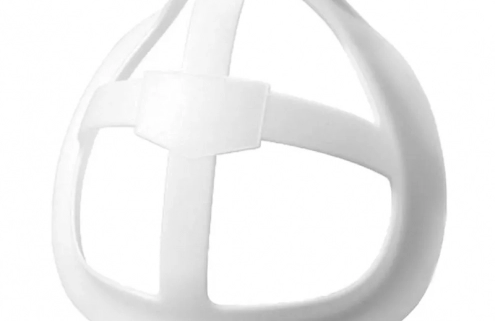When should a medical assisant ware a face shield?
Personal protective equipment (PPE) is essential for ensuring the safety and well-being of healthcare professionals. Among the various components of PPE, face shields and silicone masks are crucial for protecting medical assistants from potential risks. This essay discusses the situations in which medical assistants should wear face shields and highlights the advantages of using silicone masks in healthcare settings.
When Should a Medical Assistant Wear a Face Shield? A face shield should be worn by medical assistants in specific situations that pose an increased risk of exposure to bodily fluids, aerosols, or potential splashes. These situations include:
- Procedures generating respiratory droplets: During procedures such as intubation, suctioning, or bronchoscopy that produce droplets or airborne particles, wearing a face shield is crucial to protect against potential transmission.
- Surgeries and invasive procedures: When there is a risk of blood or bodily fluids splashing, medical assistants should wear a face shield. It acts as a barrier, preventing direct contact and transmission of infectious agents.
- Care for contagious patients: Providing care to patients with known or suspected contagious illnesses, such as COVID-19, measles, or tuberculosis, requires the use of face shields. They serve as a protective barrier against respiratory droplets containing infectious pathogens.
- High-risk areas: Medical assistants working in emergency departments, intensive care units, or respiratory therapy units should always wear face shields. These areas deal with critical cases and contagious diseases, elevating the chances of exposure to infectious agents.

Benefits of Silicone Masks: Silicone masks offer several benefits that make them a preferred choice in certain healthcare applications. These benefits include:
- Comfortable fit: Silicone masks, made from soft and flexible material, conform well to the contours of the face, ensuring a snug and secure seal. This provides a comfortable wearing experience, minimizing air leaks and discomfort during prolonged use.
- Durability: Silicone masks are highly resistant to tearing, cracking, or distortion, even with repeated use and cleaning. Their longevity reduces the need for frequent replacements, making them cost-effective.
- Chemical resistance: Silicone masks exhibit excellent resistance to hazardous substances or gases, making them ideal for use in environments involving exposure to such elements. Industries like chemical manufacturing, pharmaceuticals, and laboratories benefit from the protective properties of silicone masks.
- Easy cleaning and maintenance: Silicone masks can be easily cleaned with soap and water, wiped clean, or disinfected without compromising their integrity. This ensures hygienic and safe reuse of the masks.
- Temperature resistance: Silicone masks perform well in a wide range of temperatures, making them suitable for use in both hot and cold environments without damage or functional impairment.
Conclusion: Personal protective equipment, including face shields and silicone masks, is essential for the safety of healthcare professionals. Medical assistants should wear face shields in situations with a higher risk of exposure to bodily fluids, aerosols, or potential splashes. Silicone masks offer advantages such as comfort, durability, chemical resistance, easy cleaning, and temperature resistance. By implementing proper PPE protocols and utilizing face shields and silicone masks, medical professionals can confidently provide healthcare services while prioritizing their safety and well-being.
Xiamen Sunshine Technology Co., Ltd. are selling to our global partners, with superior quality, competitive prices and fast delivery.
Choose us as your long-term partner.
For more information, please visit our website http://www.sunshinesi.com.
Sales inquiries can be sent to [email protected]




Leave a Reply
Want to join the discussion?Feel free to contribute!